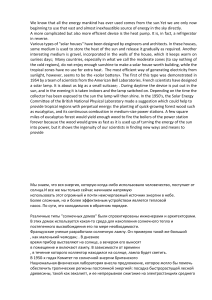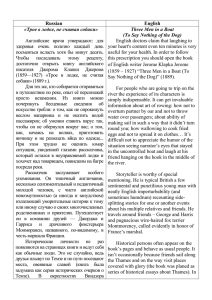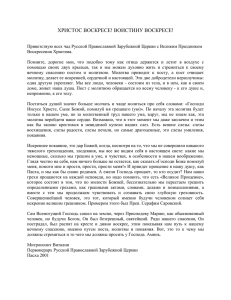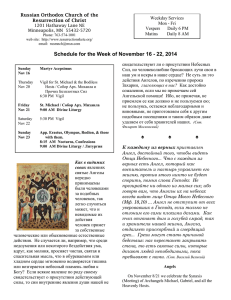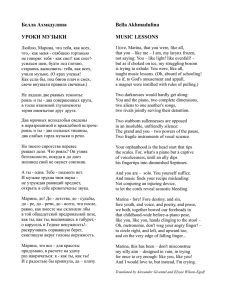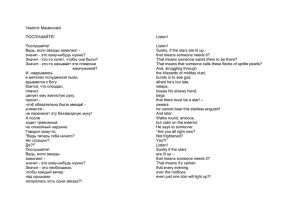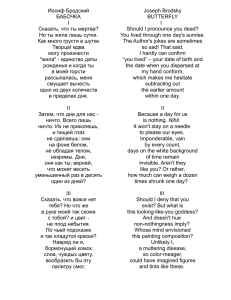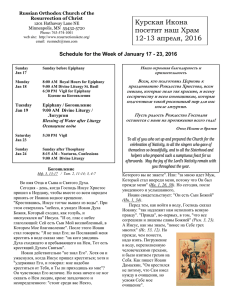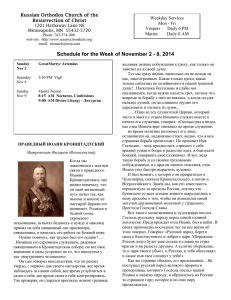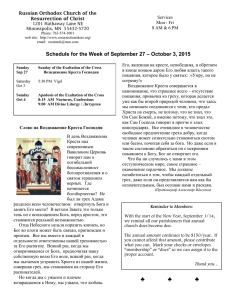Day Of Atonement
реклама
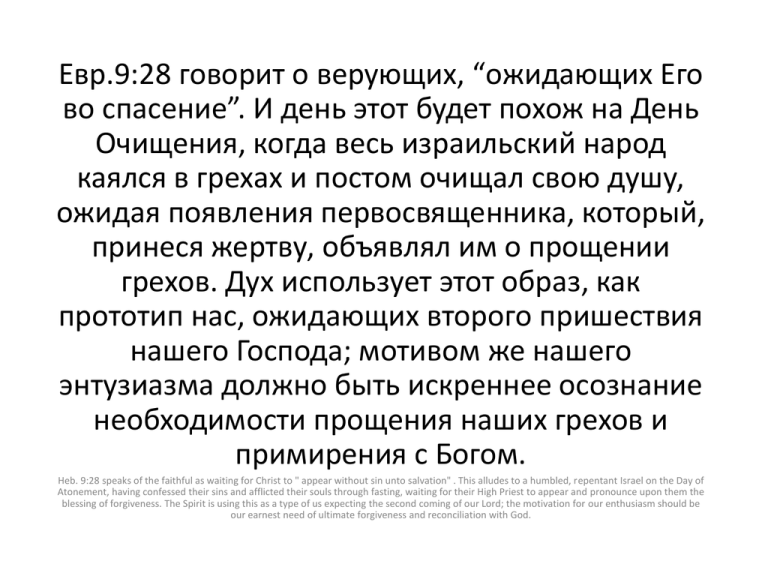
Евр.9:28 говорит о верующих, “ожидающих Его во спасение”. И день этот будет похож на День Очищения, когда весь израильский народ каялся в грехах и постом очищал свою душу, ожидая появления первосвященника, который, принеся жертву, объявлял им о прощении грехов. Дух использует этот образ, как прототип нас, ожидающих второго пришествия нашего Господа; мотивом же нашего энтузиазма должно быть искреннее осознание необходимости прощения наших грехов и примирения с Богом. Heb. 9:28 speaks of the faithful as waiting for Christ to " appear without sin unto salvation" . This alludes to a humbled, repentant Israel on the Day of Atonement, having confessed their sins and afflicted their souls through fasting, waiting for their High Priest to appear and pronounce upon them the blessing of forgiveness. The Spirit is using this as a type of us expecting the second coming of our Lord; the motivation for our enthusiasm should be our earnest need of ultimate forgiveness and reconciliation with God. • The Sephardim called the Day of Atonement, with all its typology of the cross, "the day of judgment". Joel 2:1 speaks of blowing a trumpet to announce the coming of the final judgment "day of the Lord". The phrase "day of the Lord" usually refers to a Jewish feast, and it was the day of atonement that began with the blowing of trumpets. Thus the day of judgment and the day of atonement are again linked. This day is to be one of "thick darkness", with the sun withdrawn and an earthquake (Joel 2:2,10), just as there was at the cross. Note how Lam. 2:7,22 RV describe the day of God’s judgment as “the day of a solemn feast” • Определение чистой совести дано в Евр.9,10. Павел основывает свою позицию на том факте, что люди во времена Ветхого Завета не могли очистить совесть жертвоприношениями, так как кровь жертвенных животных не могла смыть грехи; и в День Искупления им придется ответить за свои грехи. Их совесть не была совершенной (Евр.9:9). Павел делает логическое заключение: наше сознание / совесть очищены не одной только жертвой Христа, мы находимся в более высоком положении, чем ветхозаветные верующие. Мы как первосвященник, который в День Искупления входит в святое святых. Мы можем войти в святое святых с уверенностью (ср. с нервным состоянием священника), так как наша совесть очищена кровью Христа. И поэтому “приступаем” (Евр.10:22), язык главы используется для описания работы священника – служения Богу; теперь и мы можем выполнять работу священника, так как совесть наша чиста. Мы не похожи на ветхозаветных верующих, которые имели угрызения совести из-за своих грехов и нуждались для омытия грехов в крови жертвенных животных. Мы, как говорит Павел, не имеем больше сознания грехов, совесть чиста, мы достигли этого очищения крещением. “Так и нас ныне подобное сему образу крещение, не плотской нечистоты омытие, но обещание Богу доброй совести” (1Пет.3:21), • Heb 10:19,20 Итак, братия, имея дерзновение входить во святилище посредством Крови Иисуса Христа, путем новым и живым, который Он вновь открыл нам через завесу, то есть плоть Сво • Первий священник должен нести специальную форму, не одежды которым он обычно носил для того чтобы унести его регулярно обязанности. Эта форма состояла 4 белых одежд и сделаны им появляются больше как невольник чем как король. Это говорит О Христос как невольник на кресте (Phil. 2). Если мы теперь входим в самое святейшее, то мы должны сделать настолько также. Спасение других был мотивации и Христос и первое свяшеник; и посколко мы также будем входить во святилище, ето должно быть и нашие мотивации, и не толко получение нашие личное спасение. • The High Priest had to wear a special uniform, not the ornate garments that he usually wore to carry out his regular duties. This uniform consisted of four white garments and made him appear more as a slave than as a king. This speaks of Christ as a slave on the cross (Phil. 2). If we are now entering the Holiest, we are to do so likewise, motivated not so much by obtaining our own salvation, but that of others. It was the salvation of others which motivated both Christ and the High Priest; and should motivate our entry to the Holiest too. • the veil was torn open, so that we might enter into the Holiest “by the blood of Jesus, by the way which He dedicated for us...through the veil, that is to say [the sacrificing of] his flesh” (Heb. 10:19-22 Gk.). This assumes that the followers of Jesus are already in the position of the High Priest standing in the Holy Place, but through what He opened through the cross, each of us must now go through into the Most Holy. And what was the purpose of the High Priest’s entry? To obtain forgiveness for others, to mediate for them, just as Jesus did on the cross. His cross compels us to not merely passively contemplate our own salvation, but to go deeper into the very presence of God in our ministry for others. Yet the High Priest had to cleanse himself meticulously; access had been limited to the Most Holy as a result of inadequate preparation by some in the past (Lev. 16:1,2). The Lord’s death opened up the veil, for us to pass through with the utmost effort made by us in personal sanctification, in order to further God’s glory in the salvation of others. We cannot simply refuse to enter, turn away from the torn veil. To do so is to turn away from what the cross has achieved, and to place ourselves outside its scope. We must go forward, go onwards into the presence of God to replicate in essence the Saviour’s work, with the awed and humble spirit of the High Priest entering the Holiest on the day of atonement. He would surely have carefully analysed his motives, as to why he was passing through that veil, and whether he was sufficiently personally sanctified for the work he was doing. He would have been comforted by knowing that his motives were solely for the glorification of his God in the redemption for his people which he was seeking to obtain. • По смерти Его завеса в храме разорвалась, открыв путь «во святилище посредством Крови Иисуса Христа, путем новым и живым, который Он вновь открыл нам через завесу, то есть плоть (отданную в жертву) Свою» (Евр.10,19-22). Это предполагает, что последующие за Христом уже сейчас занимают положение первосвященников, уже сейчас находятся во святилище, направляясь по пути во Святое святых, открытом Им на кресте. • зачем нужно было первосвященнику входить во Святое святых? • Мы не можем повернуть назад, не желая войти через разорванную завесу, ибо это означало бы отказ от всего, что было достигнуто на кресте • An outline of the ceremonies 16:6-10 • Aaron first offered the bull as a sin (purification) offering to cover his sins and the sins of • the other priests (v. 6). Then he cast lots to decide which of the two goats would die as a • sin offering for the people and which one would be sent into the wilderness (vv. 7-8). • Then he sacrificed the goat that was to die (v. 9). Finally he brought the other goat before • the Lord and then dispatched it into the wilderness (v. 10). • В Ис.58 есть много намеков на день очищения, ибо юбилейный год начинался именно с этого праздника. Мы же, как первосвященники, готовы возвещать, проповедовать народу прощение грехов его. А потому Лк.24,47 призывает нас возвещать юбилей очищения. Греческое слово «проповедовать», которое встречается в Лк.24,47 и Лк.4,19, то же самое, каким в переводе 70-ти возвещалось о начале юбилейного года. Да и само греческое слово, которым назван юбилейный год, означает прощение и освобождение, т.е. то же, к чему нас призывает наш Господь в Лк.24,47. Это выглядит так, как будто мы видим в кресте день очищения, почему и проповедуем и возвещаем начало юбилейного года всем тем, кто принимает его. Это выглядит так, как будто мы спешим донести до людей благие вести о том, что все их долги списаны, и что они, будучи рабами, теперь получили освобождение. • • Is. 58 has many Day of Atonement allusions- the year of Jubilee began on this feast. We are as the High Priest declaring the reality of forgiveness to the crowd. Hence Lk. 24:47 asks us to proclaim a Jubilee of atonement. The Greek for “preach” in Lk. 24:47 and for “preach / proclaim the acceptable year” in Lk. 4:19 are the same, and the word is used in the LXX for proclaiming the Jubilee. And the LXX word used for ‘jubilee’ means remission, release, forgiveness, and it is the word used to describe our preaching / proclaiming forgiveness in Lk. 24:47. It could be that we are to see the cross as the day of atonement, and from then on the Jubilee should be proclaimed in the lives of those who accept it. It’s as if we are running round telling people that their mortgages have been cancelled, hire purchase payments written off...and yet we are treated as telling them something unreal, when it is in fact so real and pertinent to them. And the very fact that Yahweh has released others means that we likewise ought to live in a spirit of releasing others from their debts to us: “The creditor shall release that which he hath lent…because the Lord’s release hath been proclaimed” (Dt. 15:2RV). To preach [proclaim] the acceptable year of the Lord (Lk. 4:19) is thus parallel with “You shall proclaim liberty throughout the land to all its inhabitants” (Lev. 25:10). Likewise there are to be found other such allusions to the proclamation of Jubilee: “We as workers together with him, beseech you also that ye receive…the grace of God…a time accepted…in the day of salvation [the Jubilee] have I succoured thee: behold, now is the accepted time” (2 Cor. 6:1,2) “Repentance and remission of sins should be preached [proclaimed, s.w. 4:19] in his name among all nations” (Lk. 24:47) • В Ис 53 говорится о жертвоприношении Христa. Он Сам, принес “жертву умилостивления”, а точнее жертву повинности (ст 10). По закону, приносящий такую жертву, должен был перед закланием возложить свою руку на жертву повинности, тем самым причащаясь ее (Лев 4,4,15,24,29). И так на животное возлагались человеческие грехи, как они возлагались на козла отпущения в день очищения. И об этом упоминается здесь: “и грехи их на Себе понесет” (ст 11). “Он понес на Себе грех многих” (ст 12); “Господь возложил на Него грехи всех нас” (ст 6). • The Law required that the offerer lay his hand on the sin offering before it was killed, to associate himself with it (Lev.4:4,15,24,29). In this way the animal bore the offerer's sins, in the same way as the scapegoat bore Israel's sins on the day of Atonement. This fact is definitely alluded to here: " Bearing their iniquities" (v.11), " He bare the sin of many" (v.12), " the Lord hath laid on him the iniquity of us all" (v.6). • The High Priest on the day of Atonement sprinkled the blood eastwards, on the mercy seat. He would therefore have had to walk round to God's side of the mercy seat and sprinkle the blood back the way he had come. This would have given the picture of the blood coming out from the presence of God Himself; as if He was the sacrifice. Acts 20:28 seems to teach (in the AV) that God purchased the church with His own blood. His manifestation in His Son was especially intense. • В день очищения первосвященник кропил кровью крышку ковчега спереди, после чего переходил на другую сторону, чтобы и с другой стороны окропить ее. А это создает образ того, как будто кровь кропления является кровью Самого Бога, как будто Он Сам был принесен в жертву. В Деян 20,28 говорится, что Бог приобрел Себе церковь кровью Своею. Такова была сила откровения Его в Сыне.
